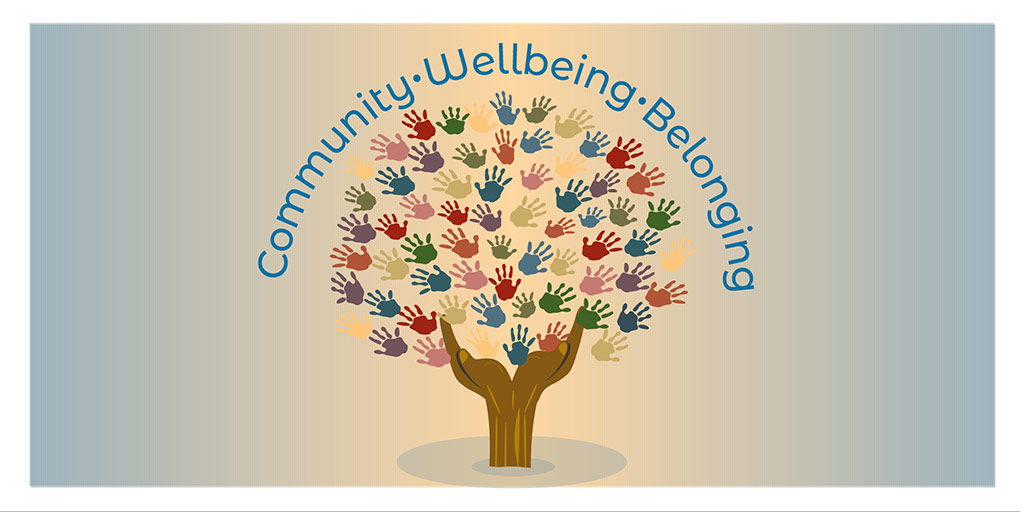Leveraging Best Practices to Support Community, Wellbeing & Belonging

On Thursday, December 15, TLL hosted members of the RIC16 Ad Hoc Committee to discuss their year-long work to understand and document how MIT instructors and faculty fostered community, wellbeing, and belonging during remote teaching and how these strategies continue to be used in classrooms and other learning spaces across campus.
Panel

Katrina LaCurts Senior Lecturer & Undergraduate Officer, Electrical Engineering & Computer Science. (EECS) Katrina’s academic interests lie in the intersection of computer systems and society. She specializes in teaching large undergraduate systems courses. and currently teaches 6.02 (Introduction to EECS via Communication Networks), 6.033 (Computer Systems Engineering), and 6.S057 (Computer Systems and Society). LaCurts received the inaugural School of Engineering Distinguished Educator Award. LaCurts received her MS and Ph.D. in CS from MIT.

David McGee, Associate Professor, Earth, Atmospheric & Planetary Science. (EAPS) David came to MIT in 2012 after graduate studies at Tulane and Columbia Universities and a postdoc at the University of Minnesota. Prior to grad school, he taught secondary school science for six years. Outside of the lab group, he directs the Terrascope first-year learning community and serves as the departmental faculty lead for diversity, equity, and inclusion.

Meghan Perdue, MITx Digital Learning Scientist, School of Humanities, Arts, and Social Sciences. (SHASS) Meghan Perdue is the Digital Learning Scientist for the School of Humanities, Arts, and Social Sciences. She works to produce innovative massive open online courses for SHASS. She also works with faculty to incorporate best practices from digital learning technologies into residential courses. She does research on a variety of topics looking at improving pedagogy in online learning, and is currently finishing a Doctorate in Education at Northeastern.

Krishna Rajagopal, William A. M. Burden Professor of Physics. Professor Rajagopal’s research areas are quantum gravity and field theory, strong interactions and Nuclear Theory. Professor Rajagopal did his undergraduate work at Queen’s University in Kingston, Canada. He then spent one year at Caltech before coming to MIT in 1997. He became the Associate Head of the Department of Physics in 2009, served as the Chair of the MIT faculty from 2015 to 2017 and as MIT’s Dean for Digital Learning from 2017 to 2021.
Additional Resources from TLL’s December Speaker Series Talk
General
- Office of Student Wellbeing (DSL)
- DoingWell.mit.edu (DSL)
- Flipping Failure (TLL)
- Community Wellness at MIT (MIT Medical)
TLL blog posts and pages
- Fostering Academic Wellbeing in the Classroom
- Mid-semester Formative Feedback (To support community, wellbeing, and belonging.)
- Trauma-informed Teaching
- Academic Belonging
- Fresh Perspectives Video interviews with MIT faculty & instructors that highlight effective teaching techniques adopted during the 2020-2021 school year – that can be used moving forward.
- Wellbeing Bibliography Compiled by Dr. Anne Marshall, Associate Director for Research and Evaluation, TLL
Reports from other institutions
- Harvard: Report of the Harvard Future of Teaching and Learning (FTL) Task Force. Barat Anand, Chair, Spring 2022.
- Stanford: Lessons from Teaching and Learning at Stanford During the COVID-19 Pandemic.
- CEEDA Report: Crisis and Catalyst: The impact of COVID-19 on global practice in engineering education. Ruth Graham, October 2022.
MIT reports
- Report of MIT’s RIC16 Ad Hoc Committee: Leveraging Best Practices from Remote Teaching for On-Campus Education, August 2022.
- MIT Strategic Action Plan for Belonging, Achievement, and Composition, 2022.
Works Cited in Presentation
Belonging
Good, Rattan, & Dweck. (2012). Why do women opt out? Sense of belonging and women’s representation in mathematics. Journal of Personality and Social Psychology, 102, 700.
Lewis, Stout, Pollock, Finkelstein, & Ito, (2016). Fitting in or opting out: A review of key social-psychological factors influencing a sense of belonging for women in physics. Physical Review Physics Education Research, 12, 020110.
Walton, & Cohen. (2011). A Brief Social-Belonging Intervention Improves Academic and Health Outcomes of Minority Students. Science, 331(6023), 1447–1451. DOI: 10.1126/science.1198364
Wellbeing
Ezarik, Melissa. (2022, May, 17). Professors’ Part in Maintaining Student Mental Health: Infographic. Inside Higher Ed. Retrieved 10/12/2022 from https://www.insidehighered.com/news/2022/05/17/seven-professor-actions-contribute-student-well-being-infographic#.Y2U-9K5zg84.link
Henry Arnaud, Celia. (2021, April 25). How an alternative grading system is improving student learning. Chemical Engineering News. Retrieved 11/07/2022 from https://cen.acs.org/education/undergraduate-education/alternative-grading-system-improving-student/99/i15
Hill, J., et al. (2021). “Pedagogic partnership in higher education: encountering emotion in learning and enhancing student wellbeing.” Journal of Geography in Higher Education 45(2): 167-185.
Mondisa, J-L, Wai-Ling Packard, B. & Montgomery, B.L. (2021). Understanding what STEM mentoring ecosystems need to thrive: A STEM-ME framework, Mentoring & Tutoring: Partnership in Learning, 29:1, 110-135, DOI: 10.1080/13611267.2021.1899588

